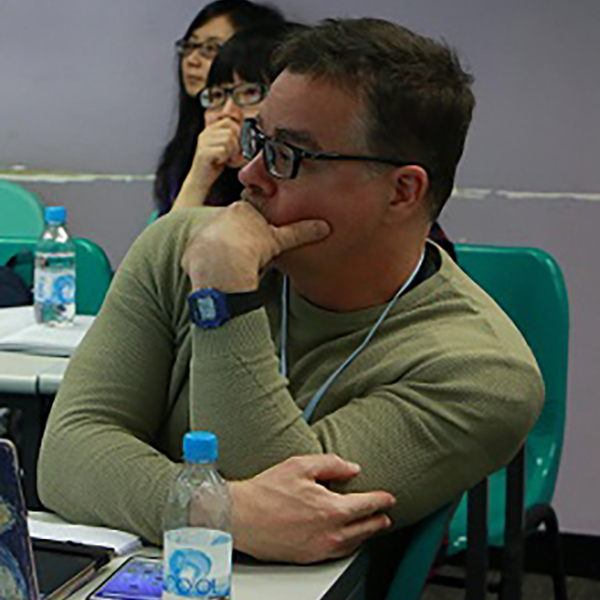
Prof. Daniel Vukovich (胡德)
PhD, Illinois
Chairperson and Undergraduate Coordinator
Director, China, Humanities, and Global Studies Research Hub
- Office: RRST 9.34
- Email: vukovich@hku.hk
- Tel: 3917 7934
Profile
Professor Daniel F. Vukovich (胡德) is an inter-disciplinary scholar, trained in cultural studies and theory at UIUC (PhD 2005), who specializes in colonialism/imperialism/politics in relation to the China-West problem. His work is grounded in ‘radically’ contextualized interpretation, yet concerned with age-old problems of representation, the politics of knowledge (in/as ‘real’ politics), and the dialectics of difference and universality. His work is influenced by Gao Mobo(高默波), Fred Jameson, Wang Hui (汪暉), and the Raymond Williams-Stuart Hall tradition of cultural studies.
After earlier stints at Hocking College in Appalachian Ohio and UC Santa Cruz, he has worked at HKU since 2006. He has been an Advisory Research Fellow at Southeast University (东南大学) in Nanjing and a Visiting Professor at East China Normal University (华东师范大学). He is the author of three monographs, including the influential China and Orientalism: Western Knowledge Production and the PRC (Routledge 2012) and the widely reviewed Illiberal China: The Ideological Challenge of the P.R.C. (Palgrave 2019). After Autonomy: A Post-Mortem for Hong Kong’s First Handover, 1997–2019 (Palgrave, 2022), critically examines the politics and global/colonial dynamics of the 2019 movement and of the SAR’s first era. (Chinese translation forthcoming.) He is also the author of many articles, essays, and media contributions.
His writings and related videos are available online at the usual places (e.g. at https://hku-hk.academia.edu/DanielVukovich). His teaching site is here: https://sites.google.com/view/classwebprofvukovichhku/introduction
He is currently the Director of the new China, Humanities, and Global Studies research hub at HKU, which aspires to bring together scholars from HKU and the mainland to think through our ‘new times.’ https://arts.hku.hk/research/CHAGS
